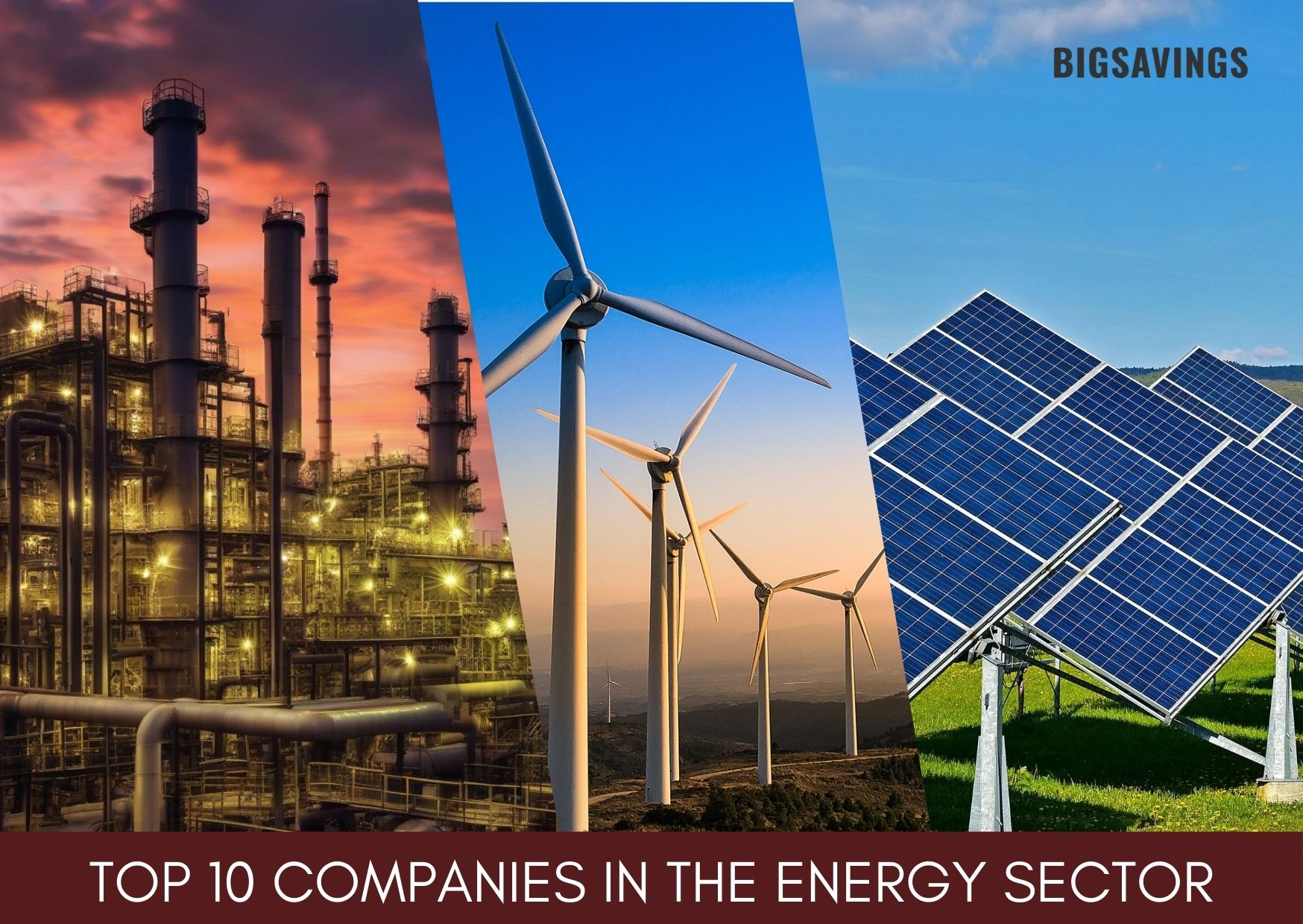The energy sector is experiencing rapid growth, not only in the United States but globally. This surge is driven by the ever-increasing demand for energy, making it understandable why many companies in this field are stepping up to meet this need. Within the energy sector, some companies focus directly on meeting energy demands, while others are involved indirectly through oil and gas operations. Notable examples include industry giants like Exxon Mobil and Chevron. While these are among the top players, there are other companies that have shown remarkable performance in recent years. If you’re interested in learning more, keep reading as we dive into the top 10 companies leading the energy sector today. Let’s get straight to the list!
1. Exxon Mobil
- Market Cap: $403.86 billion
- Employees: Over 62,000
Exxon Mobil’s journey started back in 1859 with a single oil well in Pennsylvania. Its roots trace back to the Standard Oil Company, founded by John D. Rockefeller in 1870. Despite the 1911 breakup of Standard Oil, Exxon Mobil continued to grow, becoming a major force in the global energy market. Today, Exxon Mobil is involved in various sectors including exploration, production, refining, and petrochemicals, making it a significant player in the industry.
2. Chevron
- Market Cap: $284.28 billion
- Employees: 43,846
Chevron also originated from the breakup of Standard Oil and now operates in over 180 countries. Its operations span refining, distribution, and more. Chevron has proven its resilience, especially during challenging times like the 2020 pandemic. The company leverages technology to operate in complex environments, including deepwater oil fields, demonstrating its adaptability and commitment to innovation.
3. ConocoPhillips
- Market Cap: $139.71 billion
- Employees: Over 9,500
Based in Houston, Texas, ConocoPhillips is a key player in oil and natural gas exploration and production. The company is known for its strong emphasis on safety, environmental stewardship, and ethical practices. In 2023, ConocoPhillips increased its dividend by 14%, signaling robust financial health. With projects like the Willow project in Alaska, ConocoPhillips continues to expand its reach, though not without facing environmental challenges.
4. NextEra Energy
- Market Cap: $122.59 billion
- Employees: Over 14,900
NextEra Energy, despite a 27.1% drop in stock value in 2023, maintains a solid dividend yield of 3.1%. Known for its focus on renewable energy sources such as solar and wind, NextEra is crucial in the fight against climate change. The company’s strong profitability and backing from major investors like The Vanguard Group and BlackRock underscore its significant presence in the utility sector.
5. Southern Company
- Market Cap: $75.73 billion
- Employees: 27,000+
Southern Company is on a mission to achieve net-zero greenhouse gas emissions by 2050, a goal that includes major investments in projects like nuclear power plants. While this is a costly endeavor, Southern Company has managed its finances effectively, balancing earnings and debt. Under the leadership of Christopher C. Womack, the company is navigating towards a cleaner energy future.
6. Schlumberger
- Market Cap: $75.82 billion
- Employees: 99,000+
Schlumberger stands out in the oilfield services sector, having recently seen a 6.95% rise in its stock. The company provides a wide range of services for oil and gas production, with a strong emphasis on utilizing technology for efficient and environmentally-friendly operations. Schlumberger’s focus on innovation and global presence positions it well to handle the challenges of the energy market.
7. Duke Energy
- Market Cap: $74.65 billion
- Employees: 27,535
Duke Energy is a key player in the American energy landscape. Currently, the company is exploring green tariffs to comply with North Carolina’s carbon law, reflecting its commitment to transitioning to cleaner energy and reducing carbon emissions. Residents in central and western North Carolina should expect a rate increase of 14.6% over the next three years, as approved by state regulators.
8. EOG Resources
- Market Cap: $71.30 billion
- Employees: Over 2,900
EOG Resources is a significant player in the oil and gas industry, particularly in U.S. shale regions like the Permian Basin. The company has an impressive reserve of 4.2 billion barrels and produces around 908,000 barrels per day. EOG’s commitment to rewarding shareholders through consistent dividends makes it an attractive option for investors.
9. Phillips 66
- Market Cap: $58.98 billion
- Employees: 13,000+
Phillips 66 is a major player in the U.S. refining industry. With significant investment from Elliott Investment Management, there is pressure for changes to enhance company performance. Elliott is pushing for improvements to match competitors like Marathon Petroleum and Valero Energy, indicating potential shifts in Phillips 66’s strategic direction.
10. Marathon Petroleum
- Market Cap: $57.28 billion
- Employees: 17,800+
Marathon Petroleum is making notable leadership changes with John Quaid stepping in as CFO in 2024. These shifts are part of Marathon’s broader strategy to drive growth and maintain its position as the largest refining system in the U.S. Marathon’s extensive marketing network further solidifies its dominance in the sector.
Conclusion
These are some of the top-performing energy companies of the year, and they are likely to continue performing well into 2024. For investors looking to invest in the future of energy, these companies represent potential opportunities. However, it’s always wise to conduct thorough research to determine which company aligns best with your investment goals.
FAQs about Energy Sector Companies
Q. What services do energy companies provide?
Energy companies offer services related to the generation, transmission, and distribution of energy. This includes supplying electricity and natural gas to various customers and providing energy-related products and services such as energy efficiency programs and renewable energy options.
Q. What are the different types of energy companies?
Energy companies can be categorized based on their primary focus, including electric utilities, natural gas utilities, oil and gas exploration and production companies, renewable energy developers, energy service providers, and energy trading companies.
Q. How do energy companies generate electricity?
Electricity generation by energy companies can involve fossil fuels (coal, natural gas, oil), nuclear power, hydroelectric power, and renewable sources such as solar, wind, geothermal, and biomass.
Q. Are energy companies regulated?
Yes, energy companies are often regulated by government agencies to ensure fair competition, consumer protection, and the efficient delivery of energy services. Regulations cover areas like rates, service reliability, environmental compliance, and safety standards.
Q. How do energy companies address environmental concerns?
To address environmental concerns, energy companies invest in cleaner technologies, improve energy efficiency, reduce emissions, comply with environmental regulations, and adopt sustainable practices across their operations.
Q. What is the future outlook for the energy industry?
The energy industry is undergoing significant changes due to technological advancements, environmental concerns, and policy shifts. The future will likely see increased adoption of renewable energy, grid modernization, energy storage solutions, and a greater focus on sustainability and decarbonization.


